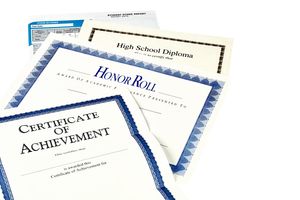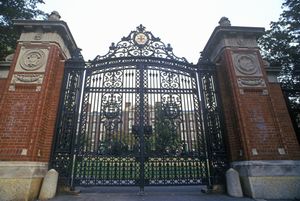Avalon Admission Blog
ACT 2025: What has Changed? What has Not Changed? Why?
Neil Chyten
In April 2025, the ACT underwent a series of structural and score reporting changes. These changes are summarized below.
Structural Changes:
· There are now fewer questions, and more time is given for each question.
· The basic test (Reading, Math, and Writing) is now 70 minutes shorter – only 125 minutes vs 195 minutes.
· Math: the number of answer choices has been reduced from five to four.
· The science section is now optional.
· Both paper-and-pencil and online test options will be available for all tests.
Scoring Changes:
· The ACT Composite score will be based on performance on the English, math, and reading sections. Students will still have the option to take all five sections previously offered, including science and writing, allowing for a more tailored testing experience. Those who opt to take the science section will also receive a STEM score, and those who choose to take the writing section will also receive an ELA score (all section scores will still be provided).
· Students choosing to take the National online test will have their ACT Superscore calculated using their English, math, and reading section scores.
moreHow is Elite College Admission like a Bowling Ball
Neil Chyten
"To be a successful candidate in elite college admission, you must build a profile that is strong and dense, like a bowling ball, rather than colorful and puffy, like a beach ball. Decisions should be cohesive and decisive, rather than hollow and disjointed."
First, let me acknowledge that the title of this article is perhaps the dumbest one I have ever written—which is really saying something, considering I’ve written close to 1,000 articles over the past 40 years. My intention was merely to get your attention because the subject matter of this article is so critically important to your college success. In truth, the bowling-ball metaphor holds up to scrutiny as long as you don’t extend it too far into the realm of cliché or tackiness by, for example, discussing knocking down pins on the bowling alley of life, or stressing the importance of being cool and smooth.
Now, before I answer the question posed in the title, let me first talk about its antithesis—the “beach-ball application.” What do you see when you picture a beach ball? Easy question, right? You see a puffy, round, light, colorful ball filled with air that floats like a feather when batted around. These qualities also describe the kind of college application submitted by most candidates. They are filled with empty activities and unimpressive details. A “beach-ball application,” if you will, results when you don’t plan ahead, or when you select activities, classes, or programs that lack significant value or cohesive structure. Often, the “colorful” part comes in the form of big-name programs such as Harvard’s Pre-College Program, Stanford’s Pre-Collegiate Summer Institutes, Tufts’ College Experience, or Summer@Brown. There is nothing inherently wrong with these programs, except that they typically cost too much for what you get in return. Mainly, they demonstrate to elite colleges that your family has enough money to pay for these high-priced, overrated college-campus summer camps. Using the beach-ball metaphor, they are colorful but don’t add much weight. However, if they contribute to your narrative in a meaningful way, they can provide some value. They certainly don’t substitute for “weightier” experiences that could transform a beach-ball application into a bowling-ball application. To be clear, the inclusion of these kinds of activities is acceptable if they add meaningful density to your application.
moreHow Important are College Supplemental Essays?
Neil Chyten - Avalon Admission
While only a small percentage of colleges require students to submit supplemental essays, many top-tier colleges, consider the supplemental essay to be even more important than the Common App personal narrative. Harvard and many other top colleges view the supplemental essay as more authentic than the common app essay.
The fact is that only a small percentage of colleges require students to submit supplemental essays. However virtually all top colleges do, and they believe that these supplemental essays are at least as important as the Common App personal narrative. Harvard, and many other top-tier colleges, consider the supplemental essay to be even more important than the personal narrative. For these colleges, students must provide meaningful detail that will allow admissions committees to elevate them over other candidates.
So, then, how should one respond to the supplemental essay prompts? Let’s use Harvard as our example. First, it should be noted that Harvard has two “hidden” prompts found in the questions section: one under academics and one under activities. These are both quite short at 150 words. For the main essay, students can write about anything they want or choose one of the provided prompts.
moreHow to Ace College Supplemental Essays
Neil Chyten - Avalon Admission
Parents and students often put far too much emphasis on the common application personal essay and not enough on the college supplemental essays and questions. While it is true that all colleges on the common app network will view the common app essay, making it rather important, colleges that offer or require supplemental essays put far more emphasis on these college-specific responses. According to one prominent Ivy League admissions official, “We don't care too much about the common app essay. Why should we, when we know that people can just pay someone to write it for them? However, we do pay close attention to applicants’ responses to our supplemental essay. In our opinion, that response gives us far more information about whether or not that person will be a good fit. It also tells us whether that applicant has taken the time to learn about us.”
This statement speaks volumes about the mindset of admissions officials at prestigious colleges and universities. First of all, it acknowledges the fact that they are aware that students get help writing admission essays. Second, it acknowledges that colleges care about whether students have done their homework about them. This is regardless of whether a college indicates that demonstrated interest, a rather murky measure of how much a student wants to go to a particular college, is a factor in admissions. Finally, it emphasizes the importance that colleges place on writing skill. A poorly constructed supplemental essay can hurt a student's admission candidacy, especially at highly competitive schools such as Ivy Leagues. A standard or mediocre essay will likely not have very much impact on a student's admission candidacy. However, an extremely well-constructed and well-conceived supplemental essay can actually move the needle in a student's direction.
moreCollege Admission Validators vs. Needle Movers – A Surprising Article
Neil Chyten
At least 1,000 times in my career, I have been asked the following questions by parents seeking to have their children attend Ivy League or equivalent colleges:
- How prestigious is being a member of National Honor Society?
- How prestigious is being an AP Scholar with Honor or Distinction?
- How important is making Honor Roll or Dean’s List?
- How important is it to have your research published?
- How important is it to have a creative portfolio?
In almost all cases, I answer, “It is very nice,” which usually, and understandably, results in a head tilt or a few follow-up questions. Suffice it to say, it is neither the response they were hoping for nor expecting. After all, these “honors” are usually thrust upon us by those who benefit from them, financially or otherwise, directly or indirectly. In other cases, I provide the very frustrating, “Well, it depends…” response. Let me clarify.
National Honor Society
The National Honor Society wants you to be a member—not out of goodwill but for the financial benefit they reap. With this particular organization, fundraising is done locally, so it is beneficial for local chapters to enlist as many students as possible. In exchange, local chapters pay an affiliation fee to the national organization. If they could invite every single student in America to join NHS without losing prestige, they would do it. Of course, doing so would negate any value it would bestow upon students. At that point, the equation would shift from:
moreA College Degree in Three Years?
Neil Chyten
There has been some discussion in social media about colleges that allow students to earn a bachelor’s degree in three years. To avoid confusion, let me set the record straight. Virtually every college in America, and absolutely every top college in America, requires students to earn 120 credits (or the equivalent) to graduate. Traditionally, students have earned these credits by taking 15 credits worth of classes each semester, usually five 3-credit courses per semester for eight semesters—two semesters per year for four years. Thus, 5 × 3 × 2 × 4 = 120. However, most colleges allow students to earn credit in less traditional ways. For example, many colleges give graduation credit for high AP scores on specific AP tests. Others give credit for results on proficiency tests, dual enrollment classes, summer classes, etc.
Some lesser-known colleges and online-degree-providing colleges provide alternative pathways to early graduation such as requiring fewer credits or granting credit for work experience and other factors. For many of these colleges, the motivation is simply monetary. They would rather have a student paying for three years than for none. For these colleges, the three-year degree is just a sales and marketing pitch. Casting these colleges aside, it is possible to earn a bachelor’s degree from a reputable college in three years. However, to do so the student must earn the same number of credits, 120, in three years instead of four. It is not impossible or uncommon, but it can be rather difficult. In some cases, students can earn credit while still in high school, can take classes during the summer, or can take classes that give are worth more than three credits. Earning credit in advance of freshman year is typically referred to as Advanced Standing or Advanced Credit. Each college has its own rules pertaining to earning credit prior to enrollment as a freshman.
moreCalifornia Bans Legacy Admissions
Neil Chyten
The state of California has just announced that it is banning legacy as a factor in college admission. Legacy admission is the practice of giving additional weight to the applications of sons or daughters, and sometimes extended family members, of an alumnus. The University of California system has not used Legacy in the admission process since 1998, so this new ruling only affects private and non-profit colleges within the state of California. California joins three other states, Colorado, Maryland, and Virginia, in banning legacy admissions.
This new law is designed to reduce wealthy white privilege in college admission, because most people who would benefit from legacy in admission are from affluent white families. The statistics bear this out undeniably. Of course, this follows the Supreme Court ruling in June 2023 that found race-based admissions to be unconstitutional.
The new law goes into effect in September, 2025 and will apply to the incoming class of 2026.
moreDeadlines to Qualify for Merit-Based Scholarships
Neil Chyten
Many Colleges Require Applications to be Received Earlier to Qualify
Many students organize their college essay writing by application deadline. However, many colleges require that you submit your application on the early application deadline, or another day prior to the regular admission deadline, in order to qualify for merit-based scholarships, even if you are not applying early action. These include UVA, UNC, U-Mich, UT Austin, Georgia Tech, BC, U-Miami, U-Richmond, USC, Vanderbilt, et. al.
These earlier deadlines are identified on the common application, so be sure to check each of the colleges you are applying to if you would like to be considered for a merit-based scholarship. Why would you not want to be? Unfortunately, neither Ivy League colleges, nor most other top colleges, offer merit-based scholarships. However, as you can see from the list above, many excellent colleges do offer these scholarships, which can be as lucrative as full four-year tuition!
moreChanges to Elite College Admissions in the Wake of Supreme Court Ruling in Students for Fair Admission v. Harvard and UNC
Neil Chyten
When Students for Fair Admissions brought its case against Harvard and the University of North Carolina for discriminating against Asian-American students in the admission process, they fully expected that the result of prevailing in the case would be a larger number of admitted Asian-American students. However, the results have proven inconsistent, and the reasons are both fascinating and entirely predictable.
With class of 2028 (the first class to be truly affected by the Supreme Court ruling) admission statistics trickling in, no consistent results can be identified. At MIT, the percentage of Asian American students admitted rose by 14% (41% to 47% of the class), mostly at the expense of Black and Latino applicants. There was a similar decrease in students of color at Tufts University and Amherst College. At Amherst College, the percentage of admitted Asian American students rose by 11% (18% to 20% of the class). At both Princeton and Yale, however, the percentage of Asian American students admitted actually decreased. Further, at Yale, the percentage of admitted white students increased slightly while the percentage of admitted Black students remained relatively unchanged.
moreFive Different Paths for High School Athletes
Brian Cook, Director of Avalon Athletes
What is a high school athlete? There is no one answer to this question. As it relates to college admission, there are five different categories of student athletes providing everything from 100% certainty in admission to only a small boost in consideration by the college admission team. Here are brief explanations of each of the five categories of high school athletes.
1. A Recruited Athlete
A recruited athlete is a student prized for both their academic record and athletic talent, whom a college coach believes can improve their team’s performance. In many cases, coaches and their coaching staffs have spent several years and thousands of dollars, not to mention the cost of athletic and training facilities, to build a competitive sports program capable of increasing the school’s national image, bringing in television dollars, high-profile March Madness, or Bowl game revenue, and giving alumni a reason to donate and endorse their pride.
A recruited student typically receives not only full tuition, room, board, and books but also highly valuable training, sports-related travel, fitness and coaching instruction, and a confidence-building opportunity that leads to academic and career success, either in their chosen sport or in the business world.
moreShould You Hire a Private School Admissions Consultant?
Neil Chyten
I am an admissions consultant, so, admittedly, my opinion on this subject might be a bit skewed. But if it is, it is based less on a desire to promote my business than on the actual value that professional admission consulting can have on a student’s admission success and state of mind. The simplest way I can make this case is by offering a comparison. Almost everyone sees the value of ISEE or SSAT test preparation. You might be able to get into a good private school with good test scores, but you are much more likely to get into a great private school with great test scores. Professional assistance helps. And the admission process is far more complex than merely preparing for a test. All in all, there are approximately 20 components that factor into private school acceptance, from identifying a personalized school list to writing essays that have the intended effect on admissions officers. Each of these 20 factors can be as important as test scores when applying to highly competitive private schools. Competition for spots at these schools is fierce, and working with a consultant can give you a much-needed advantage.
More families apply to the brand-name schools than to lesser-known schools. For example, Phillips Academy in Andover Massachusetts receives more than 2500 applications each year. From those, it admits about 350 students. St. Paul‘s School in Concord, New Hampshire, an all boarding school, receives 1400 applications per year and accepts about 150 students. The Groton School in Massachusetts receives around 1300 applications per year and accepts approximately 12% of those. A successful admission campaign for an elite private school can be challenging, but there are multiple pathways to acceptance, from stellar academics and test scores to extraordinary talent and more. By working with a consultant, you can ensure that your child’s case for admission will be as strong as possible.
moreTips for Applying to Private Schools
Neil Chyten
Getting into top private schools is not unlike getting into top colleges. The fact is that highly valued individuals demonstrate a consistent set of values whether they are applying for college or private school. That is because, to a certain extent, top schools are seeking a consistent and predictable set of characteristics from their applicants, whether for college or for private school. Overall, they are seeking to establish an advantageous mix of talent while also creating a well-blended culture of high-achieving students who are high in energy and creativity and low in risk.
When you tour private schools, one of the most obvious things you notice is the involvement of students in extracurricular activities. You see signs of this all over, from the sports fields to the locker rooms, to the art studios, tothe maker labs, and into the performance halls. Almost without exception, top private schools boast extraordinary extracurricular activities—extraordinary both in scope and quality. Since the incoming class of any private school is far smaller than the incoming class at virtually any college, it is far more important for private schools to seek students whoare talented in any of these areas in order not only to build the class, but to build sports teams, orchestras, artwork to display,and theater groups. Of course, there is no better measure of a private school than its record of matriculation. Therefore, privateschools are very focused on admitting students whom they feel have a chance to get into top colleges. So, in mostcases, it is not the quality of the private school that determines how many of its students get into top colleges. Rather, it is each school's ability to recruit top students that determines a school’s record of matriculation. A school that can recruitmore high-level students is far more likely to have an impressive record of acceptances to elite colleges. This leads us to thefirst tip for getting into elite private schools.
more











